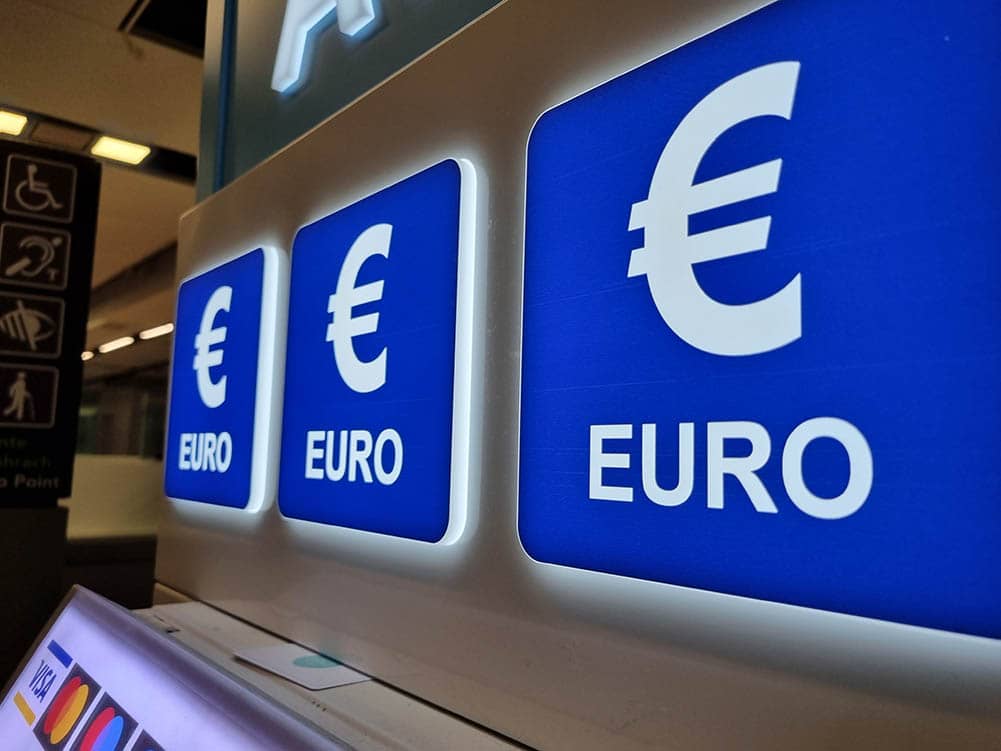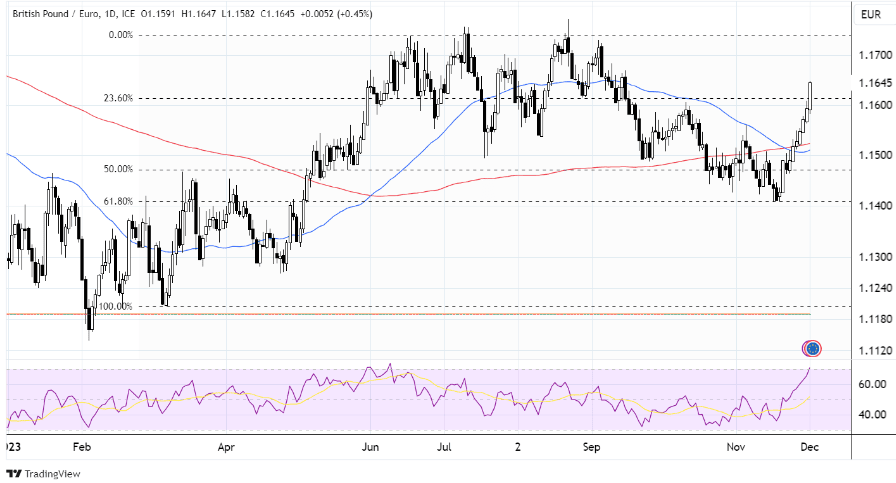GBP/EUR Week Ahead Forecast: Potential Downside After A Tear Higher
- Written by: Gary Howes
-
- The short-term targets to watch
- GBPEUR looking overbought near-term
- No UK or Eurozone calendar events this week

Image © Pound Sterling Live
Pound Sterling enters the new week with the benefit of two solid consecutive weekly advances against the Euro, which confers a degree of momentum in a calendar-light week.
Sterling has recorded two +0.90% weekly advances against the Euro, registering a peak at 1.1660 last Friday, but we are told the Pound to Euro exchange rate now looks overbought, and the coming week could see some paring of the recent advance.
"Since it posted a seven-month low of 1.1411 a fortnight ago, sterling has been on a tear relative to the single currency," says Bill McNamara at The Technical Trader. "In the space of just ten sessions, it has surged by 2.12%."
He adds that this makes for the strongest short-term push in almost fifteen months.
McNamara says there is perhaps scope for further upside for Sterling, although not, perhaps, in the short term.
"Its latest price action has left it looking overbought on most technical measures and some consolidation might not be too far away," he explains.
The above image is courtesy of The Technical Trader. Track GBPEUR with your own custom rate alerts. Set Up Here.
Although the coming days could see Pound-Euro consolidate to correct an overbought market, the setup is, on the whole, still supportive of the Pound.
The Pound has gained after interest rate expectations in the UK and Eurozone diverged meaningfully over the recent days.
In the UK, markets are paring expectations for the quantum of rate cuts due to be delivered in 2024; in the Eurozone, these rate cut bets are growing.
This divergence has widened the spread between the yield of UK bonds and those of Eurozone bonds, creating an uplift in the Pound-Euro rate.
UK survey data points to the UK economy picking up momentum in November, while the Euro was undermined by the sharper-than-expected decline in Eurozone inflation reported last Thursday.
The Eurozone inflation data encouraged markets to raise bets for the amount of interest rate cuts to come from the ECB in 2024, with a May cut now seen as a likely kick-off date.
Above: The fall in Eurozone inflation is broad-based; image courtesy of Commerzbank.
By contrast, according to market pricing, the Bank of England is only likely to make its first cut later in the summer.
The Bank of England appears to have successfully pushed back against rate cut bets, with the MPC's Bailey, Pill, Haskell, Ramsden and Greene all saying recently they believe rates will stay at 5.25% for an extended period.
This makes for a large coalition of Monetary Policy Committee members willing to strike a 'hawkish' tone at the Bank of England's December policy update.
"Sentiment has undergone a sea-change of sorts as traders have reacted to the ‘higher-for-longer’ rhetoric coming out of the Bank of England, and the concomitant expectation that UK base rates might well remain at 5.25% through 2024," says McNamara.
"Looking further ahead, however, a challenge of the year's peak, at 1.1743, looks entirely possible," he adds.


